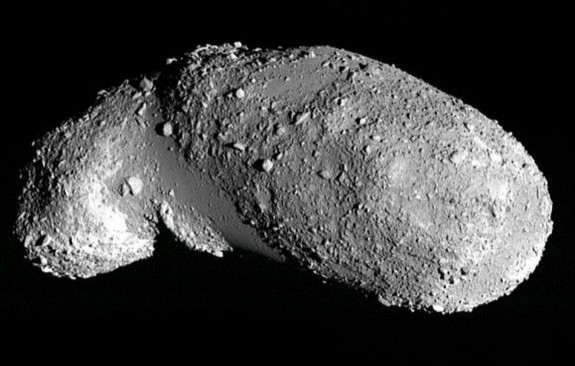Asteroid's Dust Suggest It Is Origin of Meteorites

The first asteroid dust samples brought by a Japanese spacecraft back to Earth indicate that some of the most common meteorites to hit Earth might have originated from a single rocky ancestor in space, Japanese researchers say.
The discovery is based on the dust samples collected by Hayabusa that visited the asteroid 25143 Itokawa.
Researchers studied particles less than four thousandths of inch in length and found them identical to the material that makes meteorites.
Hayabusa was launched by the Japan Aerospace Exploration Agency in 2003, landed on the surface of the Itokawa asteroid in 2005 and returned to Earth in Australia last summer.
More than 1,500 grains of dust were collected from the sample chamber and analyzed by an international team.
Tomoki Nakamura, a planetary scientist at Tohoku University in Sendai, and his colleagues found mineral signatures that indicate Itokawa had once been heated to more than 1,472 degrees Fahrenheit (800 degrees Celsius) for an extended period, National Geographic reported.
The oldest objects in the solar system are thought to be meteorites that hit the Earth, and the research confirms that S-type asteroids are indeed ancient, Nakamura said. They are primitive planetary bodies that record the history of the early solar system, he added.
Nakamura and his colleagues who have made a number of discoveries about the asteroid believe the dust had been lying on the asteroid's surface for about 8 million years.
They also believe that Itokawa is made from a larger space rock that broke apart in a cataclysmic impact.
© Copyright IBTimes 2024. All rights reserved.





















